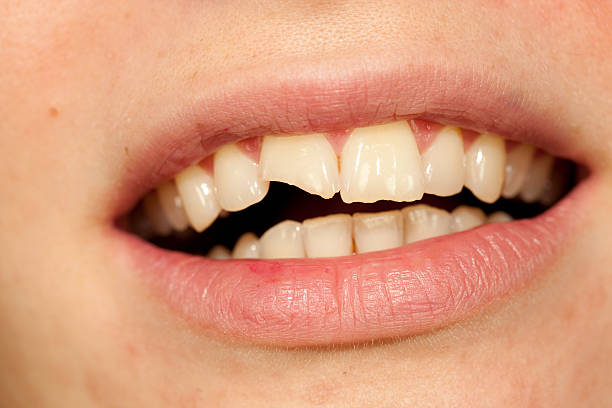If you have ever experienced a dental emergency, you know how stressful it can be – not knowing exactly what to do when you’re panicked and in pain. As your 24 hour emergency dentist in Naperville, we know that some accidents are simply unavoidable. However, there are precautions you can take to help prevent several common types of dental emergencies. Here are eight of our best safety tips for protecting your teeth and gums and preserving your dental health.
1. Pay close attention to any persistent dental pain or changes to your teeth, gums or mouth tissue.
Tooth pain is always a sign that something is wrong. It could be a cavity or a leaking filling, and if the pain goes away you might be tempted to ignore it – but that is a bad idea. A persistent infection can sometimes kill the nerve to your tooth, and the sooner you seek professional dental care, the more likely you are to save your tooth.
In addition to tooth pain, be aware of any changes in your lips, cheeks, the floor or roof of your mouth or your tongue. Any sores or ulcers that don’t heal need to be professionally evaluated right away.
2. Practice proper, daily dental hygiene.
Brushing and flossing regularly are essential keys to your overall dental health. Bacteria tend to accumulate in food debris – and that can cause both tooth decay and gum disease, both of which could lead to an emergency dental appointment.
When brushing your teeth, brush for at least two minutes to ensure every tooth surface is cleaned adequately. If you are concerned you may not be reaching that full two-minute mark, keep a small timer in the bathroom or use the timer on your smartphone.
In addition to at-least-twice-daily brushing, daily flossing is absolutely essential to maintaining oral health. Failing to floss leaves approximately 1/3 of your tooth surfaces uncleaned, greatly increasing your chances of developing cavities and gum disease.

3. Remember to replace your toothbrush on a regular basis.
If your toothbrush is worn, it will not clean effectively, leading to dental decay. . Generally, it’s a good idea to replace your brush every two to three months, or more frequently if it starts looking frayed.
4. Always be mindful of your food choices.
Sticky treats and foods can leave a residue between your teeth, and hard, crunchy foods can damage your teeth when you bite down on them, creating an immediate dental emergency. If at all possible, it’s best to avoid (or consume sparingly) food items that require a great deal of force to chew.
Even more importantly, limit your consumption of sugar. The millions of bacteria in your mouth use sugar for energy, producing a weak acid that attacks your tooth enamel and weakens it by leaching essential minerals.

5. Consider sealants for children and seniors to prevent cavities.
Sealants are often recommended for children, but they can be part of preventive care for adults as well, especially seniors. A sealant is a transparent covering painted on the chewing surface of the teeth, especially the molars, by a dental professional.
Dental sealants prevent food debris from getting trapped in the grooves of the teeth where it binds with bacteria and turns into plaque. Sealants are ideal for young children still learning proper dental hygiene and seniors who might find it difficult to brush and floss effectively.
6. When you are engaged in physical, recreational activity, wear a mouthguard.
Ideally, you should wear a mouthguard any time you’re engaged in contact sports and recreational activities where there’s a chance of falling or being hit by hard blows.
7. Never underestimate the importance of remaining hydrated.
Your body needs plenty of water to produce the saliva essential for good oral health. Saliva is a protective fluid that, among other things, washes away excess food particles, old skin cells, and bacteria. It also contains minerals that help protect your teeth and reduce the risk of tooth decay.
8. Make sure to schedule your twice-yearly dental appointments.
Make sure to visit your dentist at least twice a year for a complete dental exam and professional cleaning. During your dental visit, your dentist or dental hygienist will excise stubborn plaque deposits that cannot be removed even with meticulous brushing. During your appointment, your dentist will carefully examine your teeth, gums, and mouth, looking for any signs of health issues and will provide preventive care.
The bottom line
Dental emergencies can be both painful and debilitating, however, with proper preventive care, your risk of suffering a dental emergency can be greatly reduced.
Whether you are searching for 24-hour emergency dental care, a general dentist in Naperville, or state-of-the-art cosmetic dentistry, our expert dental team at Naperville Commons Dental is here for you. We invite you to call us at 630-355-2935 to schedule an appointment at our dental offices in Naperville, IL.



